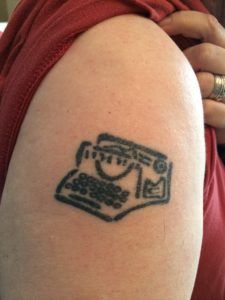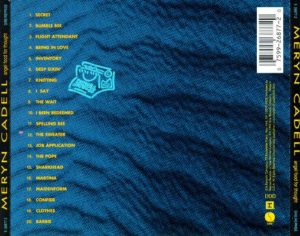What We Inherited opens today with a quote from author Bo Balder: I think lesbian-themed fiction would have been a tiny corner of the market in the past, and now it’s much more out there, much more mainstream. Women in fiction are stronger, more diverse in every possible aspect than they’ve ever been before. We’re not talking Bechdel anymore, or Rayne Hall, it’s WOMAN across the board.
I’ve asked Bo here, naturally, to share some thoughts on the Heiresses of Russ 2016 anthology and her story, “A House of Her Own,” which originally appeared in the October/November 2015 issue of The Magazine of Fantasy & Science Fiction
.
What do you think we achieve by categorizing stories, tagging them with qualities that highlight sexuality (or gender, ability, and race) ? Is it a desired end point? A necessary stage on some collective journey humanity is taking?
I think it’s a step forward. Before we can say sexuality or gender or ability are sliding scales, first you need to draw awareness to the fact that differences exist and temporarily tag them to separate them out. But I’m looking forward to a future where these aspects are just part of the whole landscape of human variety, no more remarkable than frizzy hair or flat feet or sharp eyes.
Would you say your story in the collection is typical or emblematic of your work, or an outlier?
I’d say emblematic. I tend to write issues involving women, or at the very least strong women, and I do love an alien. Because it’s so much fun to have aliens that embody both the surface more action-adventure part of the story and also many layers of symbolism underneath. I try to get the whole package.
If you were to pick stories for a historical overview–Best Heiresses of Russ of the Previous Century, that sort of thing–what would be the first story you’d seek out?
James Tiptree, “The Girl Who Was Plugged In,” or Ursula LeGuin, “Winter’s King”
One of my previous interview series, The Heroine Question, generated some interesting discussion of the gendered term Heroine. What do you think of Heiresses of Russ as a title for this project? Should it be Inheritors or Heirs?
No, I like Heiresses a lot. Because even when we’ve been trying to move away from gendered profession nouns, like actress, the default is usually the male version. Let’s do an Ann Leckie and use only female pronouns and nouns. Doctoress. Presidentess.
What are you working on now?
I’m working on a near future thriller, with, shockingly, a male protagonist, I don’t know what came over me. Also a novella in the world of another (unpublished) novel, where the people are marsupial and children can be nursed by both sexes. And always more short stories with aliens, of course.
Bo Balder is the first Dutch author to have published in The Magazine of Fantasy & Science Fiction and Clarkesworld. Her short fiction has also appeared in Nature Futures, Futuristica: Volume 1
and other places. Her sf novel The Wan
, by Pink Narcissus Press, was published in January 2016. Visit her website: www.boukjebalder.nl.
About this interview: 2016 marked my debut as an editor, with the Lethe Press anthology Heiresses of Russ. I co-edited with the capable and lovely Steve Berman; our Table of Contents announcement is here. At that time I asked some of my contributors if they’d be interested in talking a little about the ideas behind their stories, about the idea of lesbian-themed genre fiction, or anything else that seemed interesting and relevant. These are their replies.








